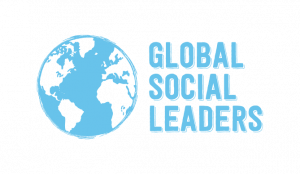We are delighted to share a blog written by student Nelo, from Swiss International School of Qatar, delivering a Global Goals project for the 2020-21 GSL Global Goals Competition.
Their project is among over 957 social action projects currently running as part of the GSL movement and we are excited to be supporting them to design and lead positive social change in their community.
So far, this has been a wholesome experience that has stretched our brains in the skills of teamwork, communicating and planning.
Project Summary
As a group, we’ve seen that there’s quite a bit of plastic in Qatar. Research shows that there is 2.5 million tons of municipal waste, 1 million of that being plastic. To deteriorate, it takes a plastic bag 10 – 20 years, a plastic water bottle 450 years, styrofoam cups 50 years and aluminum cans 200 years. All this plastic, with a prolonged duration of time will affect marine life and the environment negatively.
Therefore, we’ve decided to take action by using plastic as plant pots and making it a positive for the environment. The plastic will be collected from home and from students from the SISQ community as we encourage them to bring plastic in. Since we’ll only be using the bottom of the bottles, we donate the lids to another group hoping to make art using plastic bottle lids. We’ll store the plastic in boxes and decontaminate them there as well. In order to gain the money for the plant seeds, we’ll be selling information pamphlets and art pieces about this project. In the end, we hope to have achieved the making of a sustainable garden made out of plastic water bottles. This project will not only reduce the amount of plastic in Qatar but it will also improve the air quality.
Our Journey
A few skills that have developed are our research skills, collaboration skills and communicative skills. Our research skills have developed because we were able to find important facts about plastic waste in Qatar which helped to inspire us to take action on this project. Our collaboration skills are developing because we are learning how to work as a group and we are working to collaborate with another group. Our communicative skills have developed because we have learnt to talk to people that will benefit this project. We have learnt different things about one another like one of us like to garden, another one likes to advertise and another member likes to write.
All of these qualities have impacted this project for the better. What we see as our biggest challenge is that people won’t buy the products. The purchasing of the products is important as it supplies the money that we need to purchase the seeds for the project. We can overcome this problem by appealing to anybody who we know might be interested, making sure the products carry the message we are trying to deliver, informing one another about the project and making sure the products are of the best quality that we can achieve.
Our Next Chapter
We would recommend others to also get involved in similar projects. It’s a memorable experience because you’re achieving a lot of things. For example, by collecting plastic, you’re encouraging long term recycling. By informing as many people as you can, don’t only develop communicative skills but you’re also making people aware about the plastic problem that we have. When making the products needed, you’re developing creative skills and when you are going to sell them, you are likely going to develop business skills. Lastly, if we all try to do something about plastic, we are likely to make a large impact in the world. This includes saving sea turtles who try to eat the plastic, wildlife and prevention from toxins that plastic creates. This is why I would recommend getting involved in similar projects.
The 2020-21 GSL Global Goals Competition is now open and runs until June 2021. If you belong to one of the 500+ teams of students currently delivering a social action project as part of the competition we would love to hear from you and feature your blog and project photos on our website to inspire others.




